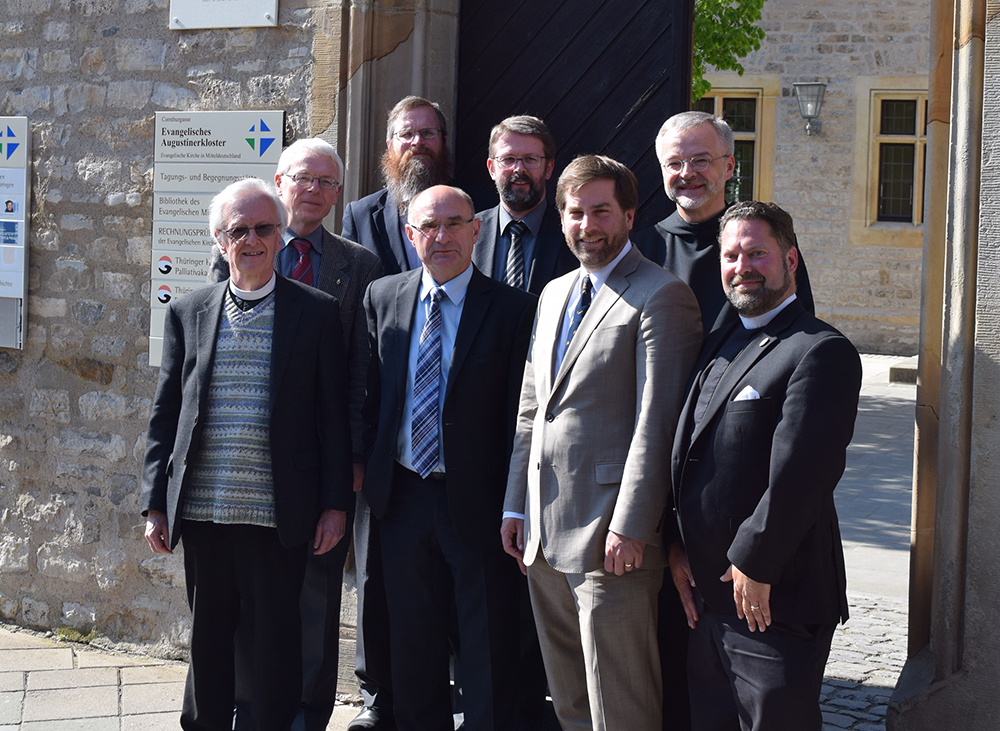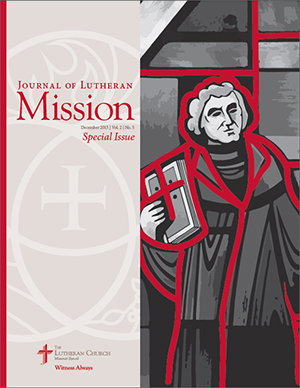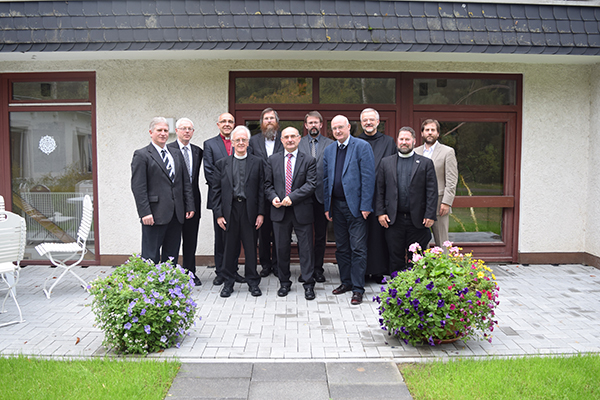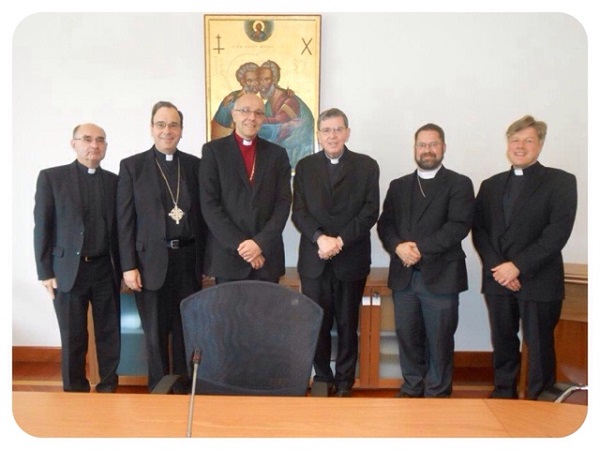
Roman Catholic and Lutheran delegates to the ILC-PCPCU meetings in May 2016.
GERMANY – On May 6-7, 2016 the Dialogue Group of the International Lutheran Council (ILC) and the Pontifical Council for Promoting Christian Unity (PCPCU) met for the second time. The venue was the Augustinian Monastery at Erfurt, Germany. Delegates on the Roman Catholic side were Dr. Josef Freitag (Erfurt, Germany) Dr. Grant Kaplan (Mainz, Germany/St. Louis, USA), Dr. Burkhard Neumann (Paderborn, Germany) and Fr. Dr. Augustinus Sander (Maria Laach, Germany). Delegates on the Lutheran side were Rev. Dr. Albert Collver III (St. Louis, USA), Dr. Werner Klän (Oberursel, Germany) Dr. John Stephenson (St. Catharines, Canada), Dr. Roland Ziegler (Ft. Wayne, USA). Unable to attend the meeting were Lutheran delegate Dr. Gerson Linden (Sao Leopoldo, Brasil) and Roman Catholic delegate Dr. Wolfgang Thoenissen (Paderborn, Germany).
As agreed upon at the first meeting, held in Oberursel, Germany in October 2015, the chief topic was the Sacrifice of the Mass. Presentations were given on Articles 24 of the Augsburg confession and its Apology by Dr. Neumann from a Roman-Catholic perspective, and by Rev. Dr. Collver from a Lutheran perspective. It was noted that the terminology on sacrifice was used in a complex manner already in the 16th century, and ambiguously at times as well. Additionally, changes in the understanding of what “sacrifice” means, occurred—especially in the Roman-Catholic camp—before the Second Vatican Council and beyond. The Dialogue Group also discussed issues like “opus operatum,” commemoration and representation of Christ’s sacrifice on the Cross, faith and the receiving of the sacramental gift, the Eucharistic Prayer, and the connection between the celebration of the Lord’s Supper with the whole of the liturgy.
For the next meeting, the Dialogue Group established working groups to address: a) how Lutheran liturgies addressed the concept of sacrifice and the sacrifice (of the Mass) from a Roman Catholic perspective,and how the concept has developed in Roman Catholic liturgies since the 16th century as seen from a Lutheran perspective, b) an evaluation of Lutheran-Roman Catholic dialogue on the theme of the Eucharist and the theology of the Lord’s Supper over the last half century, and c) a historical survey of developments and changes in the interpretation of the sacrificial dimension of the Lord’s Supper that affect how each side understands its own confession and that of its dialogue partner.
———————

 ONLINE – Presentations from the International Lutheran Council’s (ILC) 25th World Conference (held in Buenos Aires, Argentina September 23-26, 2015) have been published in a special issue of the Journal of Lutheran Mission.
ONLINE – Presentations from the International Lutheran Council’s (ILC) 25th World Conference (held in Buenos Aires, Argentina September 23-26, 2015) have been published in a special issue of the Journal of Lutheran Mission.
